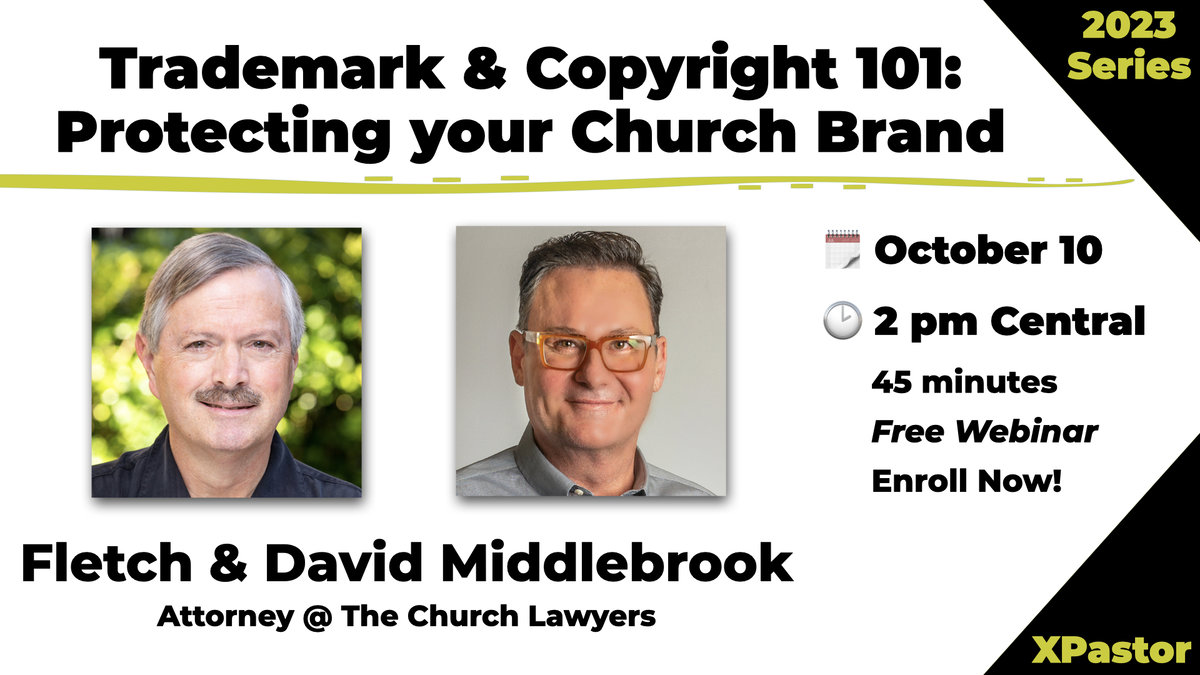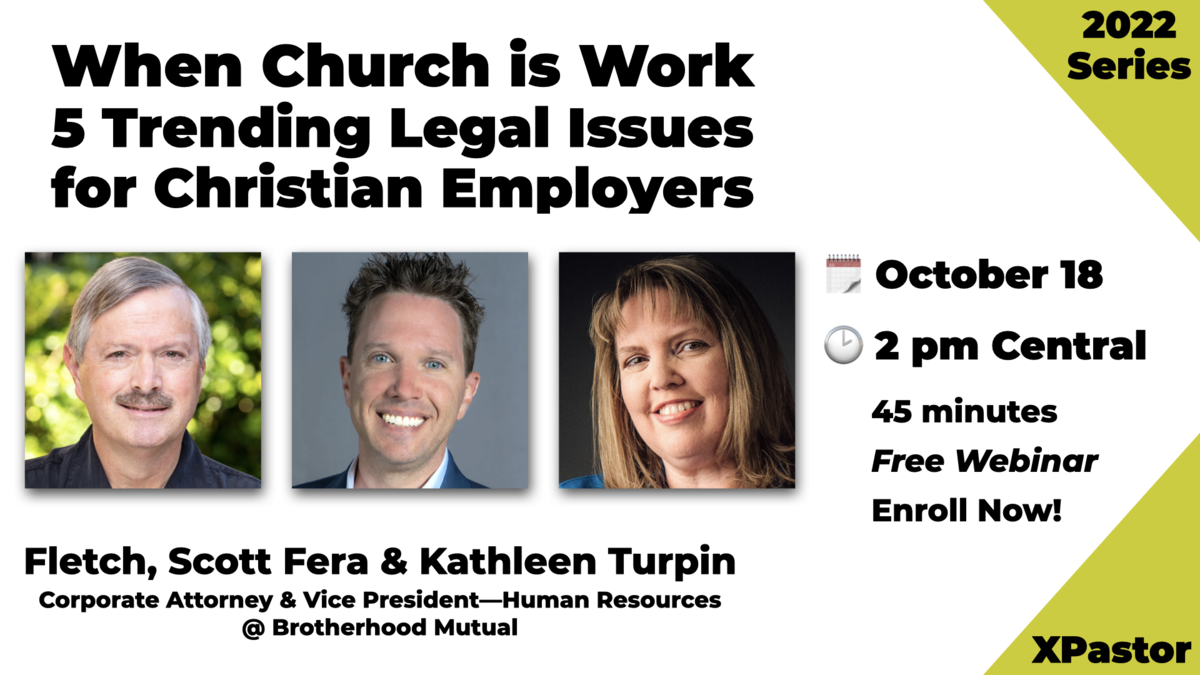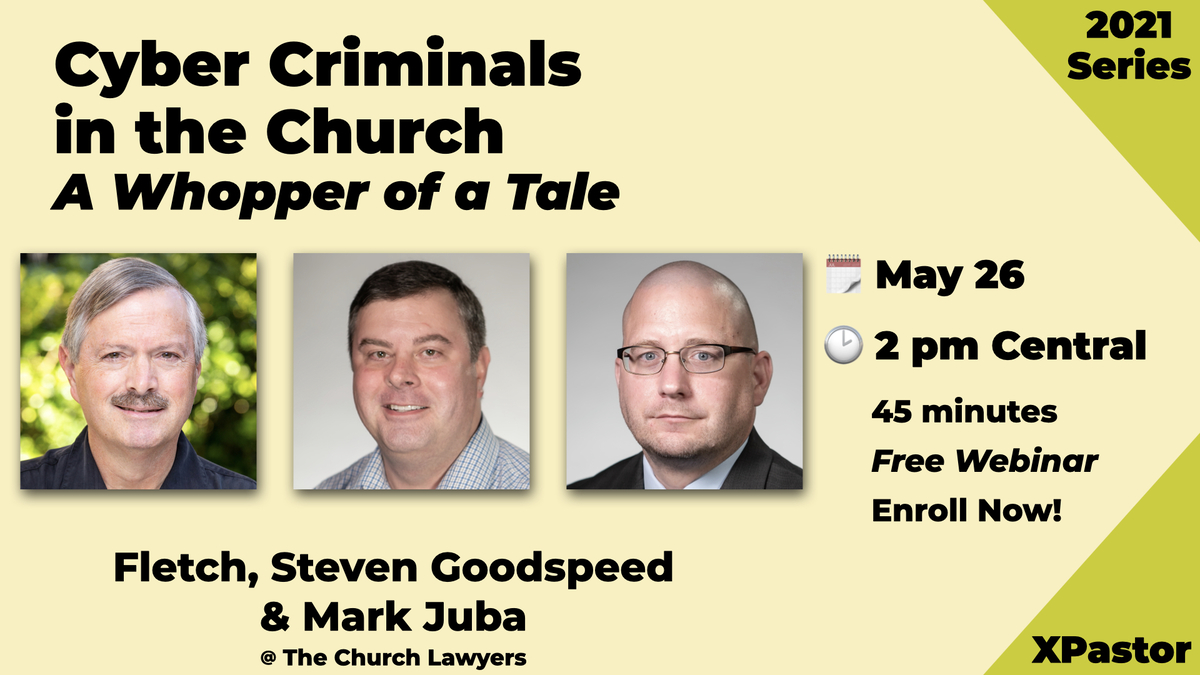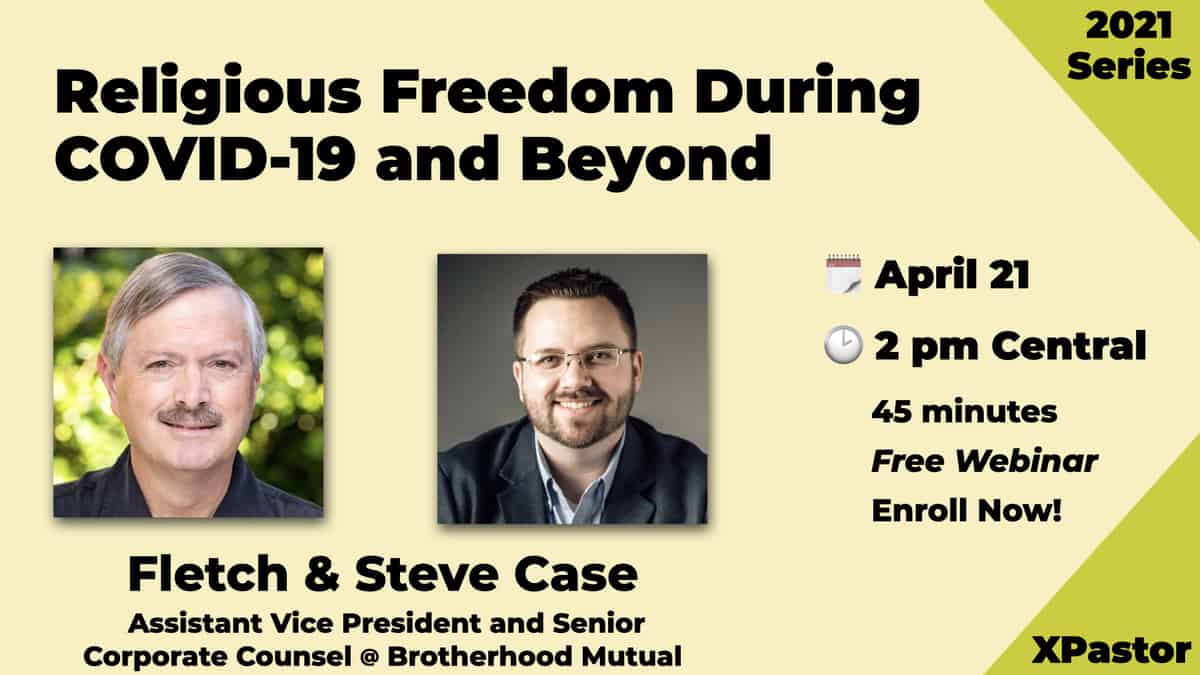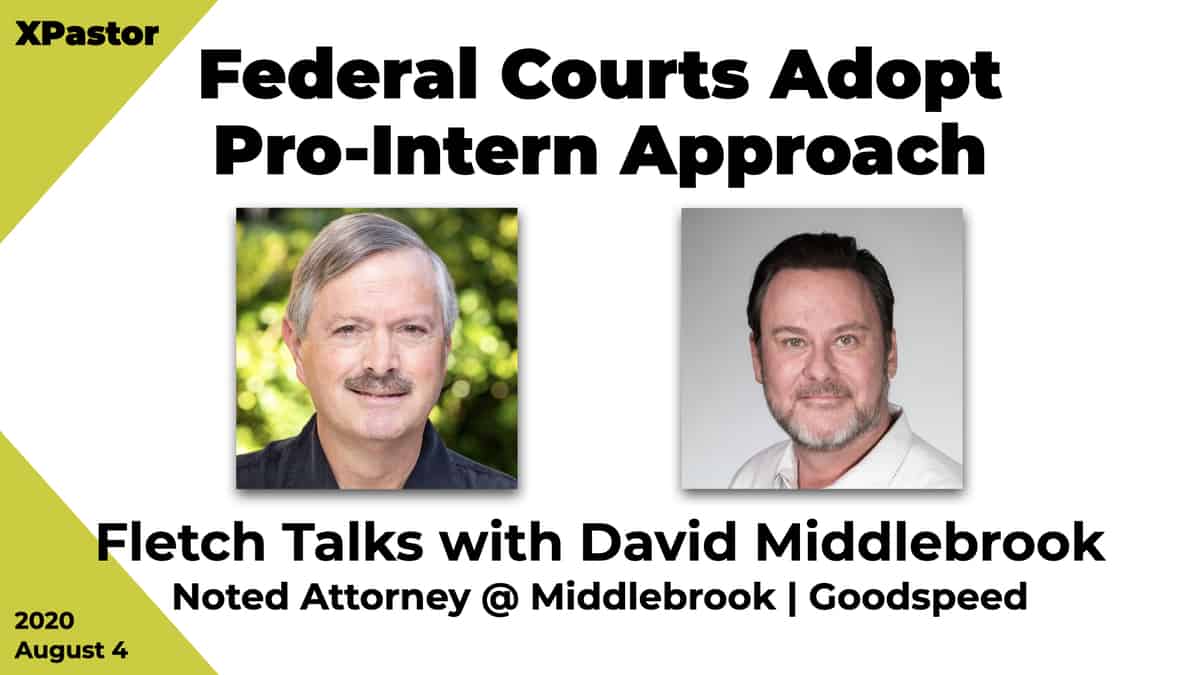Hypothetical situation: A church’s board of directors opposes the pastor, not agreeing with a certain vision or course of action, each claiming to have the best interest of the church in mind. The church’s congregation is evenly split in sympathy between the pastor and the board, while the church’s treasurer believes that the pastor is right and will not release funds authorized to be paid by the board. The board retaliates by holding an unannounced emergency meeting at a board member’s house where it votes to remove the pastor and the treasurer. Both sides file a lawsuit against the other, seeking an injunction and asking the court to determine who is right and who is wrong.
On the day of the hearing the courtroom is packed with supporters of both sides, eagerly waiting to hear what the court will decide for the church’s future. To the surprise of many, the court dismisses the case, refusing to make a ruling and leaving all concerned parties wondering what to do next.
Is there still a church?
Who is in charge?
The previous scenario is based on a true set of facts from situations that have occurred many times in jurisdictions across the country. Attorneys unfamiliar with church law are often surprised when the court refuses to rule on their pleadings. After all, if this were a for-profit corporation, or even a nonprofit corporation that was not a church, the court would jump right in issuing restraining orders, declaring whether votes taken by officers or directors were legitimate, deciding if any parties violated the law, and awarding monetary damages, court costs and attorneys’ fees.
Control is at Stake
In many of these cases, control of the church property, often of significant monetary worth, is at stake. So, why would the court not make legal rulings? The answer is found in the First Amendment to the Constitution of the United States.
Most people know that the First Amendment guarantees freedom of religion. The states all have similar protections written into their state constitutions. Therefore, civil courts are prohibited from intruding into the church’s governance of “religious” or “ecclesiastical” matters, such as theological controversy, church discipline, ecclesiastical government, or the conformity of members to standards of morality. The United States Supreme Court has said on this issue:
It is the essence of religious faith that ecclesiastical decisions are reached and are to be accepted as matters of faith whether or not rational or measurable by objective criteria. Constitutional concepts of due process, involving secular notions of ‘fundamental fairness’ or impermissible objectives, are therefore hardly relevant to such matters of ecclesiastical cognizance.
That means the court will not get involved even in an obvious pattern of unfair conduct. On the other hand, the court can become involved in a church dispute if the issues involved are related to traditional civil, contract or property rights. Thus, the initial question that a court must confront is whether the dispute is ecclesiastical in nature or involves a traditional civil dispute.
In order to make that decision, the courts commonly look to the church’s governing documents, such as its constitution or articles of incorporation and bylaws. If the court can make a ruling simply by reviewing and interpreting the church’s bylaws, then it will treat the matter as a traditional legal dispute and rule accordingly. If the dispute requires interpreting facts and judging someone’s motives or the religious beliefs of the church, then it will abstain, or purposely decline to rule.
In one reported case, the church’s bylaws said that a board member could be removed if he was acting in a manner that was not “cooperative” with the pastor or other board members. When the board member was removed under this bylaw, he filed suit. The court declined to become involved because the word “cooperative” was not defined, and the court would have to hear competing opinions about what constituted “cooperation” under that church’s religious history or tradition.
Neither did the bylaws specify who was authorized to make a finding that a board member was not “cooperative.” In order to determine if the pastor, who had ordered the dismissal of the board member, was authorized, the court would have had to hear competing testimony about the historic power of the pastor in that church tradition.
Sometimes the Court Takes Action
Situations in which the court has ruled on church controversies include instances in which the bylaws were very precise regarding certain procedures, such as removal of a pastor. Those procedures were not followed, and the court did not need further testimony to understand the context of the bylaws. In another reported case, a local church was not in compliance with state law because it did not allow a member to review church financial records. The court ordered the church to allow the records to be reviewed, because the law was clear about what needed to happen.
While deciding whether or not to rule in a particular case, the court must also classify a church as a “hierarchal” structure or a “congregational” structure. Hierarchal churches have a larger organization that has supervision or control of the local church in varying degrees. Common examples of that structure are the Methodist or Catholic churches. Congregational churches may have some loose affiliation with a larger organization, but governance remains with the local church. An example is the Baptist church.
Courts are less inclined to become involved in disputes in a hierarchal structure, instead leaving decisions to the highest authority or tribunal of that denomination. In contrast, the courts are more willing to become involved in disputes in congregational churches, particularly if it appears that the dispute is not going to be resolved according to the majority vote of the congregation.
Define the Category
Occasionally a church’s category is debatable, so courts look at various characteristics when deciding how to classify it, such as: affiliation with a parent church; whether it is subject to review and control by higher authorities of that church tradition; control or submission to the jurisdiction of a parent church or constitution promulgated by the parent church; a charter from the parent church governing its affairs and specifying ownership of its property; the repository of legal title; and licensing or ordination of local ministers by the parent church. While it is more likely that a church will be left alone by the courts if its articles and bylaws are unclear or are full of subjective terms that require delving into religious issues, it is also more likely to become involved in breakdowns in communication, unhealthy power struggles, unresolved arguments and an unfruitful existence. Clear and concise governing documents promote a healthy church.


